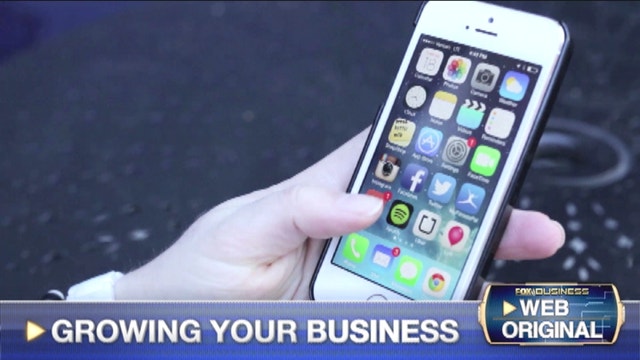Meet the ‘WhatsApp’ for Business: Cotap
Imagine being able to text your boss, and not have it be inappropriate or awkward.
That’s what Cotap is aiming for. The company says it hopes to be the business version of WhatsApp, the messenger service that Facebook (NASDAQ:FB) acquired earlier this year for $19 billion.
Cotap is different, co-founder Jim Patterson says, because it allows businesses that use it to integrate their company’s contact directory into the app’s software. That means users don’t have to have their coworkers’ direct contact information on hand to reach out.
“We are getting a lot of traction from companies that have a larger percentage of their workforce without desktop computers,” Patterson says. “One of the companies we work with is Hyatt, who is pushing it out to their hotels managers, who use it to coordinate their day-to-day activities. Email and desktop don’t really work for them, and they had previously been using walkie-talkies, so this is quieter.”
The app also stores conversations, and can have public records for employees listing company details including Wi-Fi password codes and more.
“This is for people who are inherently mobile,” he says. “And we see people using this to unbundle their work, and do more things in the moment. Messages work for when there isn’t enough time to type out a whole email.”
The San Francisco-based company so far has raised$15.5 million from Emergence Capital Partners and Charles River Ventures. The app has 8,500 users on the free version, and the company just launched the paid version, which has a dozen or so users, Patterson says. The company has 30 employees, and hopes to double that number by year’s end.
The paid version allows companies to remote wipe all the data from a former employee’s phone, Patterson says, and gives the opportunity to send out mobile alerts company-wide, much like an Amber Alert.
“Employers have a web-based console, and can monitor and administer their users,” he says.
Patterson also knows a thing or two about launching a business, having co-founded Yammer with Zack Parker in 2008. Yammer, a social network for businesses, was acquired by Microsoft (NASDAQ:MSFT) in 2012 for $1.2 billion.
The acquisition experience was rife with lessons, Patterson says, and deeply personal.
“It was an interesting experience, starting at Yammer with 500 employees, and then moving to a company with 100,000 employees,” he says. “Turning down the deal meant taking the company public. It’s personal, and you have to look at the macro-environment—companies always treat these decisions differently.”
And his new venture’s biggest challenge today is marketing its strictly-mobile services.
“We’re building a company that is purely mobile—the app isn’t available on the web or desktop,” he says. “The way most apps grow is by having users invite their friends and family to download it. When someone clicks on that email, then the web browser, getting them to install the app is a big challenge. There is still a long road to go to closing the web-to-app bridge.”




















